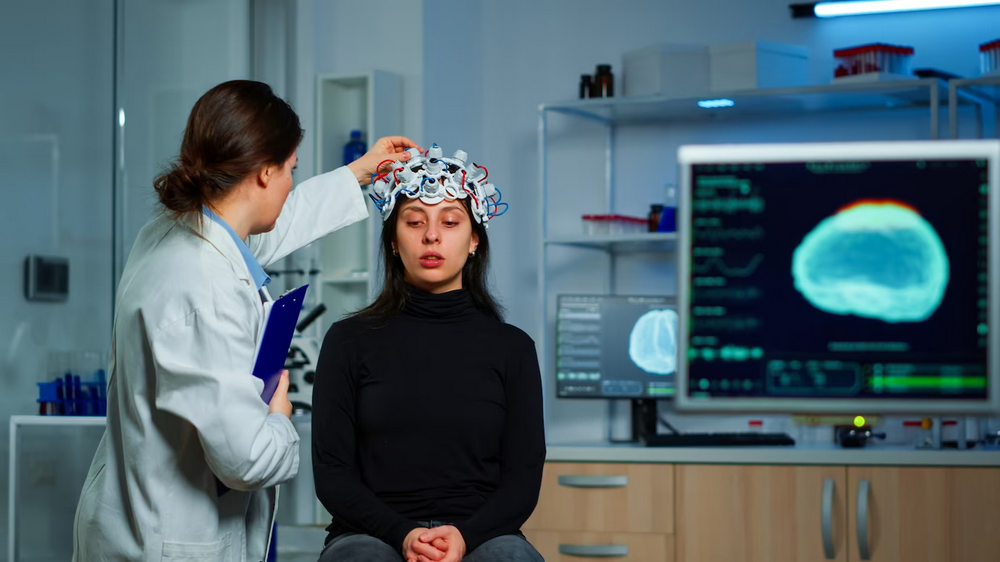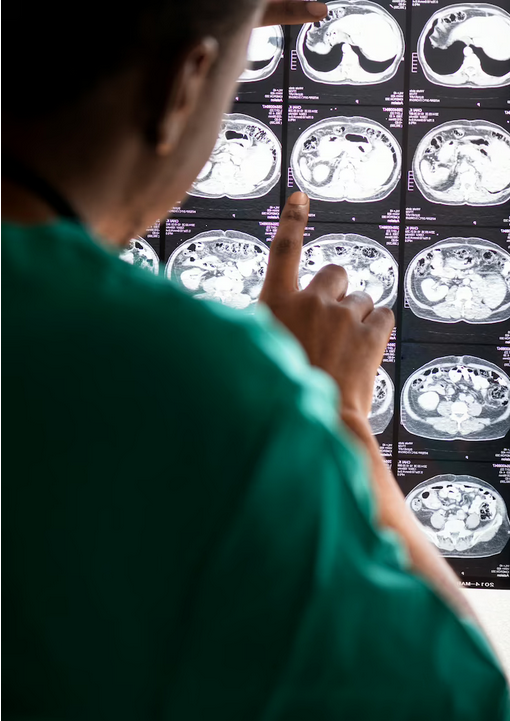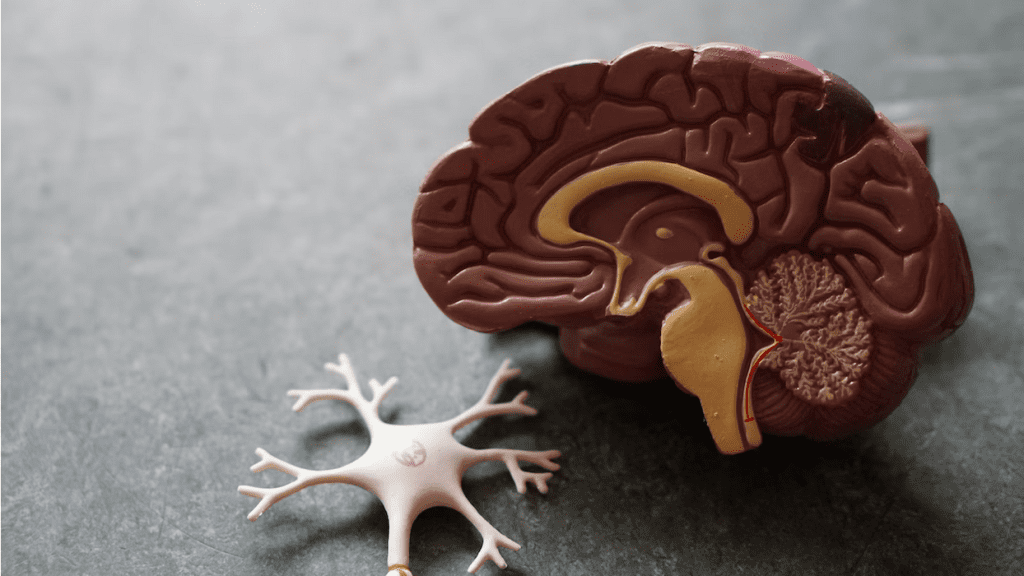Traumatic Brain Injury (TBI) is a form of acquired brain injury that occurs when a sudden trauma causes damage to the brain. It can result from a wide range of external physical forces, such as a car accident, a fall, an object striking the head, or an explosion.
TBI can have a wide range of physical, cognitive, emotional, and behavioral effects. Some of these effects may be short-term, while others may cause long-term or even permanent changes.
Recovery from TBI depends on the severity and type of injury and may involve a combination of physical, cognitive, and psychosocial therapies. This section will explore the various types of therapies used in the recovery process following a traumatic brain injury.
What is Traumatic Brain Injury?
Traumatic Brain Injury (TBI) is a form of physical injury caused by an external force to the head that results in a disruption of normal brain function.
TBI can have a wide range of severity and can be classified into two main categories: open head injuries and closed head injuries.
Open head injuries occur when the skull is penetrated by an object, while closed head injuries occur when the skull is not penetrated but the brain is still damaged by a strong force such as a bullet or a car accident.

Definition and Causes of TBI
Understanding the definition and causes of a traumatic event can provide insight into potential pathways for subsequent recovery.
Traumatic brain injury (TBI) is defined as a form of acquired brain damage that results from a traumatic event, such as a violent blow to the head or body, or a penetrating head injury.
This type of injury can cause a wide range of physical, cognitive, and behavioral impairments, and can cause partial or permanent disability or death.
The most common causes of TBI include motor vehicle accidents, falls, sports injuries, violent assaults, and blasts or explosions.
The severity of a TBI can range from mild to severe, with symptoms occurring immediately or over a period of time.
Mild TBIs can produce a short loss of consciousness, confusion, and disorientation; whereas a severe TBI can cause an extended period of unconsciousness, coma, or even death.
A TBI can also cause physical symptoms, such as headaches, dizziness, nausea, fatigue, loss of balance, vision problems, memory loss, and ringing in the ears (tinnitus).
Depending on the severity of the injury, a TBI can lead to long-term or permanent disabilities, including impaired memory, speech, and movement.
Types of Traumatic Brain Injuries
The effects of a traumatic event can be devastating, with a wide range of short- and long-term impairments that can cause significant physical, cognitive, and behavioral difficulties.
Traumatic brain injuries (TBIs) are a type of brain injury that are typically caused by an external force, such as a blow to the head.
There are three primary types of TBIs: open, closed, and penetrating.
An open or depressed TBI occurs when a foreign object, such as a bullet or piece of shrapnel, penetrates the skull and enters the brain tissue.
A closed TBI is the result of an external force, such as a sharp blow to the head, that does not penetrate the skull.
Penetrating TBIs are caused when an object penetrates the skull and enters the brain tissue.
Each type of TBI can result in a wide range of physical, cognitive, and emotional impairments.
It is important to note that even mild TBIs can have serious long-term effects, including cognitive impairment, memory loss, difficulty concentrating, and personality changes.
Symptoms of TBI
Traumatic Brain Injury (TBI) is a serious medical condition that can have a wide range of physical, cognitive, and emotional symptoms.
Physical symptoms of TBI can include headaches, dizziness, fatigue, tinnitus, blurred vision, and loss of balance.
Cognitive and emotional symptoms of TBI can include difficulty focusing, memory problems, difficulty making decisions, changes in personality, and depression.
Physical Symptoms
Analysis of physical symptoms can provide insight into the progression of post-trauma recovery.
Traumatic brain injury (TBI) can cause a wide range of physical symptoms, including dizziness, headache, nausea, blurred vision, double vision, fatigue, and balance issues.
In some cases, physical impairments such as paralysis and difficulty with speech can also occur due to the damage to the brain tissues.
Depending on the severity of the injury, these physical symptoms may last for days, months, or even years.
In some cases, the physical symptoms associated with a TBI may never fully resolve.
In addition to the physical symptoms, the individual may also experience psychological symptoms, such as memory problems, difficulty concentrating, depression, and anxiety.
The psychological symptoms can be both physical and emotional in nature, and can have a significant impact on the individual’s quality of life.
It is important to note that these psychological symptoms can be a direct result of the physical symptoms, or can be secondary to the physical trauma.
Therefore, it is essential to monitor the progression of physical symptoms in order to assess the overall progress of the individual’s recovery.
Cognitive and Emotional Symptoms
Cognitive and emotional symptoms can result from a traumatic experience, and can have a significant impact on an individual’s quality of life. These symptoms can include impaired memory, difficulty paying attention, slowed thinking, difficulty with problem-solving or reasoning, and difficulty with multitasking.
Additionally, individuals with a traumatic brain injury may experience depression, anxiety, aggression, and mood swings. Such emotional symptoms can also lead to sleep disturbances, the need for increased social support, and difficulty coping with everyday life.
It is important for those with a traumatic brain injury to seek the help of a healthcare provider for proper diagnosis and treatment. Treatment may include physical rehabilitation, cognitive behavioral therapy, medications, and lifestyle modifications.
With the proper care and support, individuals can experience a significant improvement in their cognitive and emotional symptoms and improve their quality of life.
Diagnosis & Treatment
Traumatic Brain Injury (TBI) is a serious medical condition affecting millions of people every year.
Diagnostic tests are an important part of the process for assessing the severity of the injury and determining the best course of treatment.
Medical treatments and interventions have been developed to improve the recovery process of individuals with TBI and can include medications, physical therapy, occupational therapy, cognitive therapy, and more.
Diagnostic Tests for TBI
Through the use of advanced diagnostic tests, it is possible to gain valuable insight into the effects of a debilitating condition on an individual’s life. Traumatic brain injury (TBI) can cause a range of physical, cognitive, and psychological deficits that can greatly impair an individual’s functioning. To accurately diagnose and monitor TBI, a range of diagnostic tests are available.
Imaging tests such as computed tomography (CT) scans, magnetic resonance imaging (MRI) scans, and positron emission tomography (PET) scans are commonly used to diagnose TBI and to assess the severity of the injury. These tests provide information about the size and location of any lesions or other abnormalities in the brain, allowing physicians to gain an understanding of the extent of the injury and to develop an appropriate treatment plan.
Additionally, neuropsychological testing can be used to assess cognitive functions such as memory, language, and executive functioning, providing a comprehensive overview of the individual’s functioning.
Finally, neurological exams can be used to assess the individual’s motor functioning and the presence of any sensory deficits.

Medical Treatments and Interventions
Medical treatments and interventions can be used to help individuals manage the effects of a TBI and improve their functioning.
Treatments for mild TBI typically involve rest, medication, and physical and cognitive therapies. Medications such as acetaminophen or ibuprofen may be prescribed to help reduce swelling or to reduce pain associated with the injury.
Physical and occupational therapies can help the individual to improve their coordination, balance, strength, and speech. Cognitive therapies, such as cognitive behavioral therapy, can help the individual improve their memory, problem-solving skills, and ability to concentrate.
For moderate to severe TBI, more intensive treatments are often necessary. Surgery may be required to remove a blood clot or to reduce pressure on the brain.
The individual may require medications to reduce swelling, control seizures, or to reduce muscle spasms, or may need to be placed on a ventilator to assist with breathing.
The individual may also require physical and occupational therapies to improve their ability to move and complete daily activities. They may also benefit from cognitive therapies to help improve their memory, problem-solving skills, and ability to concentrate.
Physical Therapy
Physical therapy plays a key role in the rehabilitation process for those affected by a traumatic event.
Physical therapists can help individuals to improve functional abilities, manage pain, and minimize the risk of further injury.
Physical therapists can assist in the recovery process by providing:
- Exercises to improve mobility and strength
- Range of motion exercises
- Resistance exercises
- Endurance exercises
- Manual therapy techniques
- Soft tissue mobilization
- Joint mobilization
- Manual stretching
- Education and advice
- Ergonomic advice
- Self-management of pain
- Activity modification
Individuals may also receive other forms of therapy such as aqua therapy, balance and vestibular rehabilitation, and gait training.
Each of these treatments helps to improve physical functioning and the quality of life.
Physical therapists are knowledgeable and experienced in helping individuals recover and reclaim their lives after a traumatic brain injury.
Cognitive Rehabilitation
Physical therapy is often an important component of traumatic brain injury (TBI) recovery, as it is used to strengthen muscle tone and improve coordination and balance.
However, cognitive rehabilitation is also a critical component of the recovery process. Cognitive rehabilitation is a type of therapy that focuses on helping individuals with TBI regain and strengthen their cognitive and executive functioning abilities. It is aimed at helping individuals with TBI to be able to think, learn, and remember more effectively.
Cognitive rehabilitation is usually a combination of methods and techniques. It may include activities such as memory exercises, problem-solving strategies, language and communication training, and social skills training.
Cognitive rehabilitation can also involve the use of assistive technology, such as computer programs, to help individuals with TBI understand concepts and complete tasks. The goals of cognitive rehabilitation are to improve an individual’s ability to function in day-to-day life, as well as to reduce the impact of TBI on their life.
Cognitive rehabilitation generally focuses on improving an individual’s memory, problem-solving skills, communication, and executive functioning, all of which are common areas of difficulty for individuals with TBI.
Psychosocial Support
Psychosocial support is an important part of the recovery process for those who have suffered a traumatic brain injury.
Emotional support plays a key role in this process, as it helps the individual to feel connected, accepted, and understood.
Research has demonstrated that those who have access to emotional support during recovery experience better physical and psychological outcomes compared to those who do not receive such support.
The Importance of Emotional Support
Emotional support plays an integral role in the process of regaining full functioning after a life-altering event. People who have suffered a traumatic brain injury (TBI) may experience a wide range of emotions, including fear, anger, sadness, and hopelessness.
In order to effectively manage these emotions, both patients and their caregivers must understand the importance of providing emotional support. Through the use of various strategies, such as providing reassurance, listening to feelings, and showing empathy, families and friends of those with TBI can create an environment in which emotional healing can begin.
For example, it is important to acknowledge and validate the emotions of the patient, as this can help them feel understood and accepted. Additionally, providing the patient with a safe space to express their feelings can help them process and manage their emotions in a healthy way.
In addition to providing emotional support, it is also important to provide practical assistance, such as helping with daily activities and providing resources for long-term care. By understanding the importance of emotional support and providing a safe and supportive environment, TBI patients and their caregivers can work together to promote healing and recovery.
Conclusion
Traumatic brain injury is a serious medical condition that can have long-lasting effects on the patient’s mental and physical functioning.
Treatment for TBI is complex and can involve a combination of physical therapy, cognitive rehabilitation, and psychosocial support to help the patient reach a better quality of life.
Each patient’s experience is unique, and recovery is a gradual and ongoing process.
Support from family, friends, and medical professionals is essential in helping the patient to make progress and to adapt to the changes caused by the injury.
With concerted effort, the patient can make significant strides towards recovery and improved well-being.
1-800-ASK-GARY is a 24/7 complimentary helpline for individuals involved in motor vehicle accidents, including cars, commercial trucks, and motorcycles. Our team of specialists is available to provide assistance at any time of day for those injured in such incidents. Furthermore, we will directly connect you with a medical or legal expert who can support you in the aftermath of the accident.



